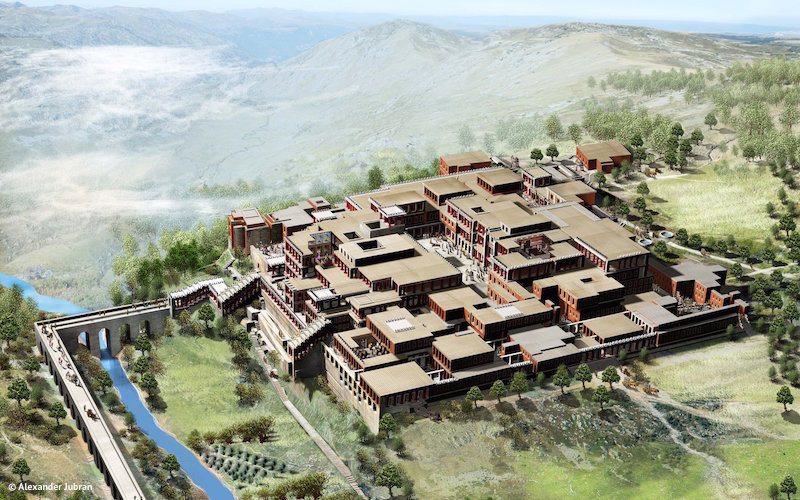Minoan Civilization, 2000 B.C. – 1450 B.C.
Like the Roman Empire, the Minoan civilization made a significant contribution to modern culture—western European civilization in particular. The Minoan civilization was located on the island of Crete from roughly 2000 B.C. to 1450 B.C. There are four major sites that archaeologists found that likely related to the Minoan civilization: Knossos, Phaistos, Malia, and Zakros. In each of these settlements were large, palace-like buildings, and researchers think that these structures not only acted as palaces but also as the city center where the people would have conducted trade, housed local government and political centers, and held religious gatherings. These people likely also stored weapons, wine, oil, metals, ceramics, and grain here.
The palaces are relatively well-developed. They even have drainage systems, theater areas, storage locations, staircases, colonnades, religious crypts, and light-wells. They are complex structures, and the ruins indicate that the civilization may have worshipped bulls and engaged in bull-leaping activities. It is perhaps the bull worship and the complexity of the palace that gave rise to the minotaur legend that is a popular part of Greek mythology (where a half bull, half man wanders a labyrinth).
It appears the civilization traded extensively, especially because of their connection to the sea. Copper—likely from Cyprus—and ivory from Egypt was found in the ruins. It is perhaps this emphasis on trade that led to the development of a modernized version of script, the civilization’s most significant addition to history. They were also skilled mathematicians. Like other ancient civilizations, it is unclear what led to the fall of the Minoan civilization. It could be the rise of the Mycenaean civilization on the Greek mainland that led to a defeat, but it could also be the result of a natural disaster like earthquakes or volcanic activities paired with a tsunami.
Expand your knowledge universe in just 5 minutes a day via bite-sized email courses.
Share with friends:

